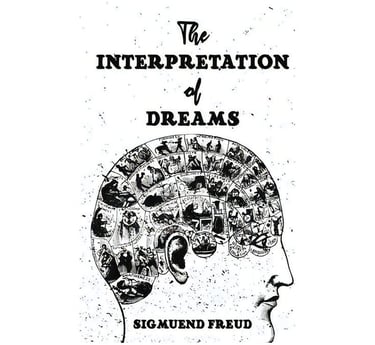Decoding Dreams: Beyond Freud’s Interpretation of the Unconscious Mind
Explore dreams beyond Freud’s interpretation — uncover how psychology, neuroscience, and symbolism reveal the unconscious mind, emotions, and personal growth.
9/19/20252 min read


Decoding Dreams: Beyond Freud’s Interpretation
Introduction
Why do we dream? Are they random brain sparks, hidden messages from the unconscious, or something more?
Freud’s dream interpretation reshaped psychology by suggesting that dreams reflect repressed desires. But today, research shows that dreams hold multiple layers — from neuroscience to cultural symbolism. In this blog, we’ll explore Freud’s original ideas, their limits, and modern perspectives that go far beyond Freud.
Freud’s Dream Interpretation: The Beginning
Manifest Content vs. Latent Content → Freud explained that dreams have a surface storyline (manifest content) and a hidden unconscious meaning (latent content).
Wish Fulfillment → For Freud, dreams represented desires, often repressed, surfacing in disguised forms.
Symbolism → Many dream symbols, according to Freud, revealed hidden sexual or aggressive impulses.
Key Insight: Freud unlocked the idea that dreams are not random — they are windows into the unconscious.
Beyond Freud: Modern Views on Dreams
While Freud laid the foundation, new perspectives broaden our understanding:
Neuroscience of Dreams
The Activation-Synthesis Theory suggests dreams are the brain’s way of making sense of random neural activity during REM sleep.
Dreams may help with memory consolidation and emotional processing.
Carl Jung’s Perspective
Jung saw dreams as a path to individuation (personal growth).
He introduced the idea of archetypes — universal symbols that connect personal and collective unconscious.
Cognitive Approach
Dreams mirror daily concerns and problem-solving attempts.
Example: Dreaming of exams often reflects stress, not repressed wishes.
Cultural and Spiritual Views
In many cultures, dreams are seen as messages, omens, or spiritual guidance.
Modern psychology acknowledges the subjective and cultural layers in dream interpretation.
Why Do Dreams Matter in Everyday Life?
Self-Reflection → Dreams highlight emotions we suppress in waking life.
Emotional Healing → Processing fears and traumas in symbolic form.
Creativity Boost → Many innovations, from scientific theories to works of art, were inspired by dreams.
Personal Growth → Decoding dreams helps us understand the unconscious and grow emotionally.
Practical Tips: Decoding Your Dreams
Keep a Dream Journal → Write your dreams immediately after waking.
Spot Recurring Patterns → Repeated themes often point to unresolved issues.
Look Beyond Symbols → Instead of fixed meanings, ask: What does this symbol mean to me personally?
Connect with Emotions → The feeling in a dream is often more revealing than the imagery.
Conclusion: Dreams as a Gateway to the Self
Freud’s dream interpretation opened the door, but today, we see dreams as multi-layered — shaped by biology, culture, and personal meaning. By decoding our dreams, we gain insight into our unconscious, process emotions, and unlock personal growth.
Dreams aren’t just mysteries of the night; they are guides to becoming a better version of yourself.
